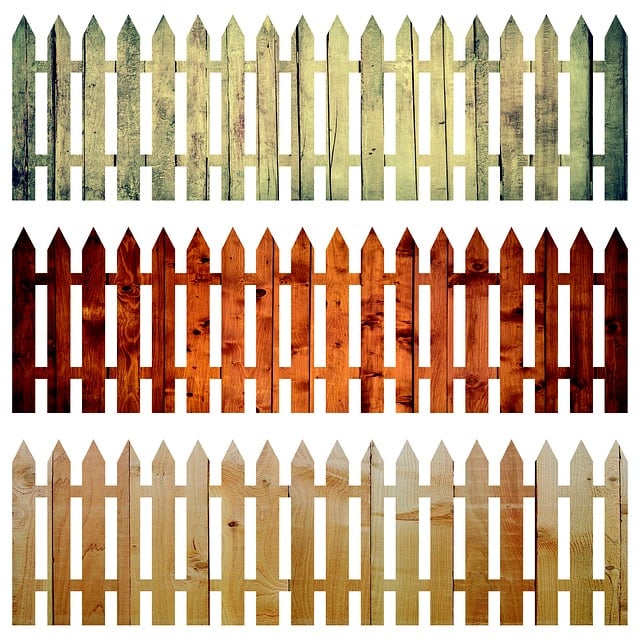In New Bedford, Massachusetts, planning a fence installation project requires understanding local regulations and exploring various options tailored to your property. This comprehensive guide delves into the intricacies of fence installation in New Bedford, from navigating zoning laws to selecting among common types like vinyl, wood, or chain-link. We break down factors influencing cost, provide tips for obtaining customized estimates, review local contractors, and offer insights into maintenance and long-term expenses, empowering you with knowledge for a successful project.
- Understanding New Bedford's Fence Regulations
- Common Types of Fences in the Area
- Factors Influencing Installation Cost
- Obtaining Customized Price Estimates
- Local Contractor Options and Reviews
- Maintenance Considerations and Long-Term Expenses
Understanding New Bedford's Fence Regulations
New Bedford, like many cities, has specific regulations governing fence installation to ensure aesthetic consistency and safety. Before beginning any fence project, it’s crucial to familiarize yourself with these local laws. The city’s Zoning Board of Appeal handles such matters and maintains a comprehensive guide outlining permitted fence types, heights, materials, and placement restrictions.
These regulations often vary based on property type (residential, commercial) and neighborhood design. For instance, certain historic districts may have stricter guidelines to preserve the area’s character. Understanding these rules is essential to avoid costly mistakes or penalties. It’s recommended to consult the city’s official website or contact their planning department for detailed information relevant to your specific location and project.
Common Types of Fences in the Area
In New Bedford, Massachusetts, homeowners have several fence options to choose from, each with its own aesthetic appeal and functional benefits. The most common types include wood fences, known for their natural beauty and versatility, offering a classic look that enhances any property. Vinyl fences are another popular choice; they require minimal maintenance, are durable, and come in various styles, from traditional picket designs to more modern lattice patterns.
Chain-link fences are also prevalent, particularly in areas with larger properties or where security is a priority. They provide clear visibility and robust security without obstructing the view. Moreover, fencing materials can vary in terms of quality and price; high-end options like metal or custom-crafted wood can significantly impact the overall installation cost, while more budget-friendly choices like vinyl or chain link offer lower initial investments.
Factors Influencing Installation Cost
The cost of fence installation in New Bedford can vary significantly based on several factors. One of the primary determinants is the type of material used, with options ranging from wood and vinyl to iron or chain-link fences. Each material has its own price point, durability, and aesthetic appeal. For instance, while wood offers a natural look, it may require more frequent maintenance and replacement compared to durable vinyl.
Another crucial factor is the size and complexity of the fence project. Smaller, straightforward installations will generally cost less than larger, custom designs that involve intricate patterns or unique shapes. The location of the fence also plays a role; installing a fence in challenging terrain or remote areas often comes with additional labor costs. Moreover, permits and local regulations can impact the overall expense, as certain cities or towns may have specific requirements that necessitate additional fees or compliance measures.
Obtaining Customized Price Estimates
When obtaining customized price estimates for fence installation in New Bedford, Massachusetts, it’s crucial to connect with local professionals directly. Many companies offer free consultations where they assess your property, discuss your preferences, and provide tailored cost breakdowns. This personalized approach accounts for factors like material choices, fence complexity, size, and any unique design elements you may have in mind.
Additionally, gathering quotes from multiple service providers allows for a comprehensive comparison. Remember that prices can vary based on market fluctuations, labor costs, and the specific requirements of your project. By requesting detailed estimates, you gain valuable insights into potential expenses, enabling informed decision-making for your New Bedford fence installation.
Local Contractor Options and Reviews
When considering fence installation in New Bedford, exploring local contractor options is a smart step. The city boasts a vibrant community with numerous small businesses, many of which specialize in outdoor home improvements like fencing. Online reviews can be a goldmine for finding reliable and trusted contractors; platforms like Angie’s List, HomeAdvisor, or even neighborhood Facebook groups often feature discussions and recommendations from satisfied customers.
Checking a contractor’s portfolio, understanding their warranty offerings, and comparing quotes are essential before making a decision. Local contractors typically have a deeper understanding of regional regulations and codes, ensuring your fence installation adheres to all necessary guidelines. They may also offer tailored solutions based on New Bedford’s unique landscape and weather patterns, enhancing the longevity of your new fence.
Maintenance Considerations and Long-Term Expenses
When considering fence installation in New Bedford, Massachusetts, it’s crucial to factor in maintenance costs that can vary widely based on the type of fence and materials used. Wooden fences, for instance, require regular cleaning, painting, or staining to prevent rot and maintain their aesthetic appeal, which adds to long-term expenses over time. On the other hand, vinyl fencing demands minimal upkeep but could incur higher initial installation costs.
Moreover, factoring in potential repairs is essential. Fences can be susceptible to damage from weather events, animals, or accidental impacts. While some issues might be easily reparable, others may necessitate complete replacement sections, adding unexpected expenses. Planning for these contingencies helps ensure a more accurate estimate of the total cost of ownership over the fence’s lifespan.
